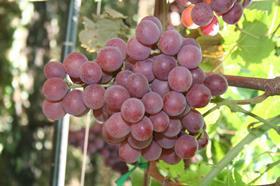
California farmers could be amongst the beneficiaries of the recent thawing of relations between the US and Cuba. The Caribbean island imports around 80 per cent of its food and growers in the US are in a strong position to take advantage of renewed trade links between the two countries.
Table grape, raisin and nut producers in California’s San Joaquin Valley are ideally placed to supply Cuba’s flourishing tourism industry and eventually the island’s 11.2m consumers.
“If they are going o buy almonds, it’s going to come from us,” Daniel Sumner, director of the University of California Agricultural Issues Centre at UC Davis told the Fresno Bee. “The whole idea is that the more open markets there are the better.”
Last month, president Obama announced an easing of restrictions on travel and trade with Cuba. In fact, US companies have been permitted to export food products since 2000 but restrictions to trade have put them at a competitive disadvantage.
A coalition made up of 25 US food companies is now lobbying the government to end the embargo. The value of US exports to Cuba reached US$253m in the first ten months of 2014 but a 2010 study by Texas A&M University estimates that Cuba could import an additional US$365m of US products.
Kathleen Nave, president of the California Table Grape Commission, believes the industry could ship up to 200,000 cartons to Cuba in the coming years.
“Our experience tells us that in markets like Cuba, once the economy improves and people have more disposable income, they will become buyers of California grapes,” she said.
Jane Asmar, vice president of sales for the National Raisin company, said there was the potential for Cuba to become an established export market.
“I think this could be a great opportunity. But we will also have to work at building the market,” she said.
The easing of restrictions mean that Cuban companies can now wire payment for imported US food products directly to the seller’s bank account whereas previously they were required to pay cash upfront and the transaction was usually carried out via a bank in a third country.






No comments yet